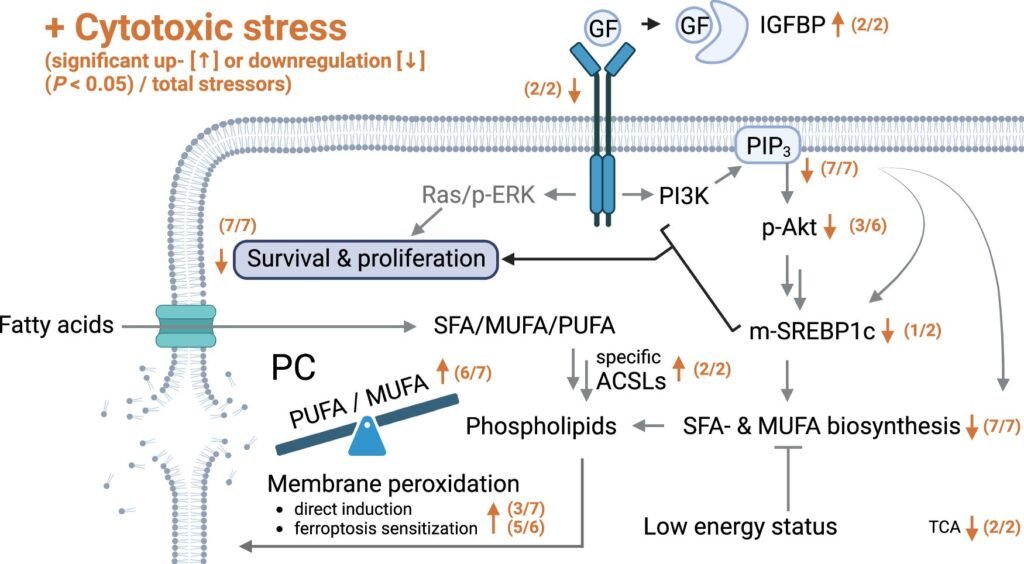Cancer therapy resistance has long been a challenge in the field of oncology. Conventional chemotherapeutic agents often reach their limits when faced with tumors that develop resistance. However, a recent study by an international research team has shed light on a new mechanism that could revolutionize cancer treatment strategies.
Andreas Koeberle, a pharmacist at the University of Graz and the lead author of the study published in Nature Communications, discovered that cytotoxic agents derived from natural sources can induce a stress response in cancer cells. This stress response leads to the incorporation of polyunsaturated fatty acids into the cell membrane, making the cancer cells more susceptible to ferroptosis, a form of cell death.
Natural substances, such as those from the Chinese “happy tree,” have been used in cancer treatment due to their ability to disrupt vital cellular processes. However, some cancer cells can adapt and survive, leading to therapy resistance. Koeberle’s research revealed a previously unknown mechanism that could provide new therapeutic options for overcoming resistance in cancer cells.
The incorporation of polyunsaturated fatty acids into the cell membrane during the stress response triggers ferroptosis, a pathway that leads to cell death. This mechanism was found to be universal across different types of cancer cells and cytotoxic agents. By targeting this pathway, researchers hope to develop innovative treatment strategies for therapy-resistant tumors.
The study involved researchers from various institutions, including Innsbruck, Hamburg, Jena, Salzburg, Tokyo, and Valbonne. The findings pave the way for further research into utilizing membrane changes induced by cytotoxic agents to eliminate cancer cells completely.
In conclusion, the discovery of this mechanism offers a promising avenue for the development of new cancer treatment strategies. By harnessing the power of nature and targeting ferroptosis in therapy-resistant tumors, researchers aim to improve patient outcomes and overcome the challenges posed by cancer therapy resistance.


